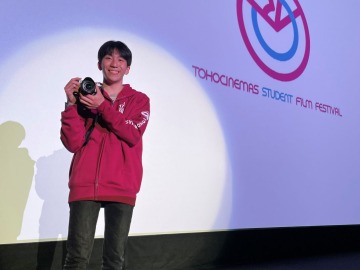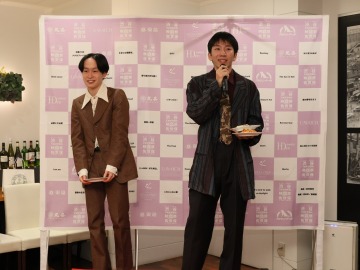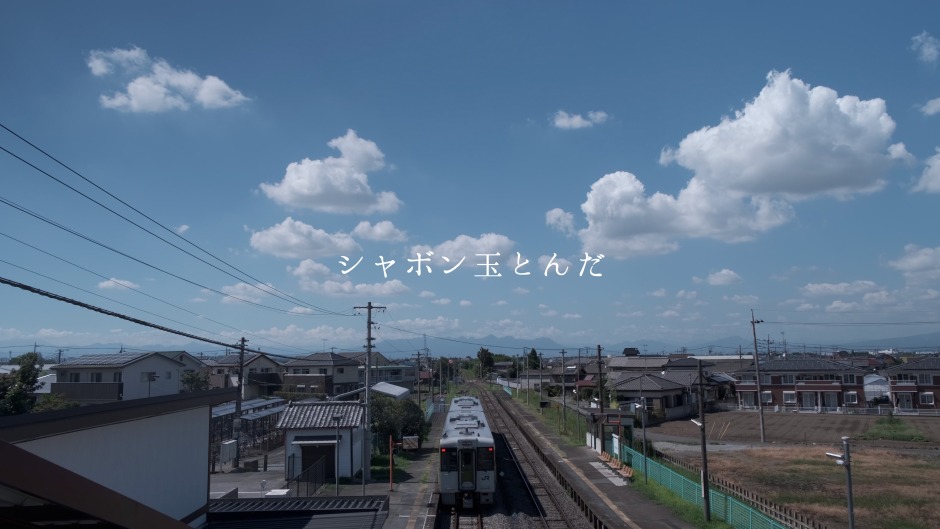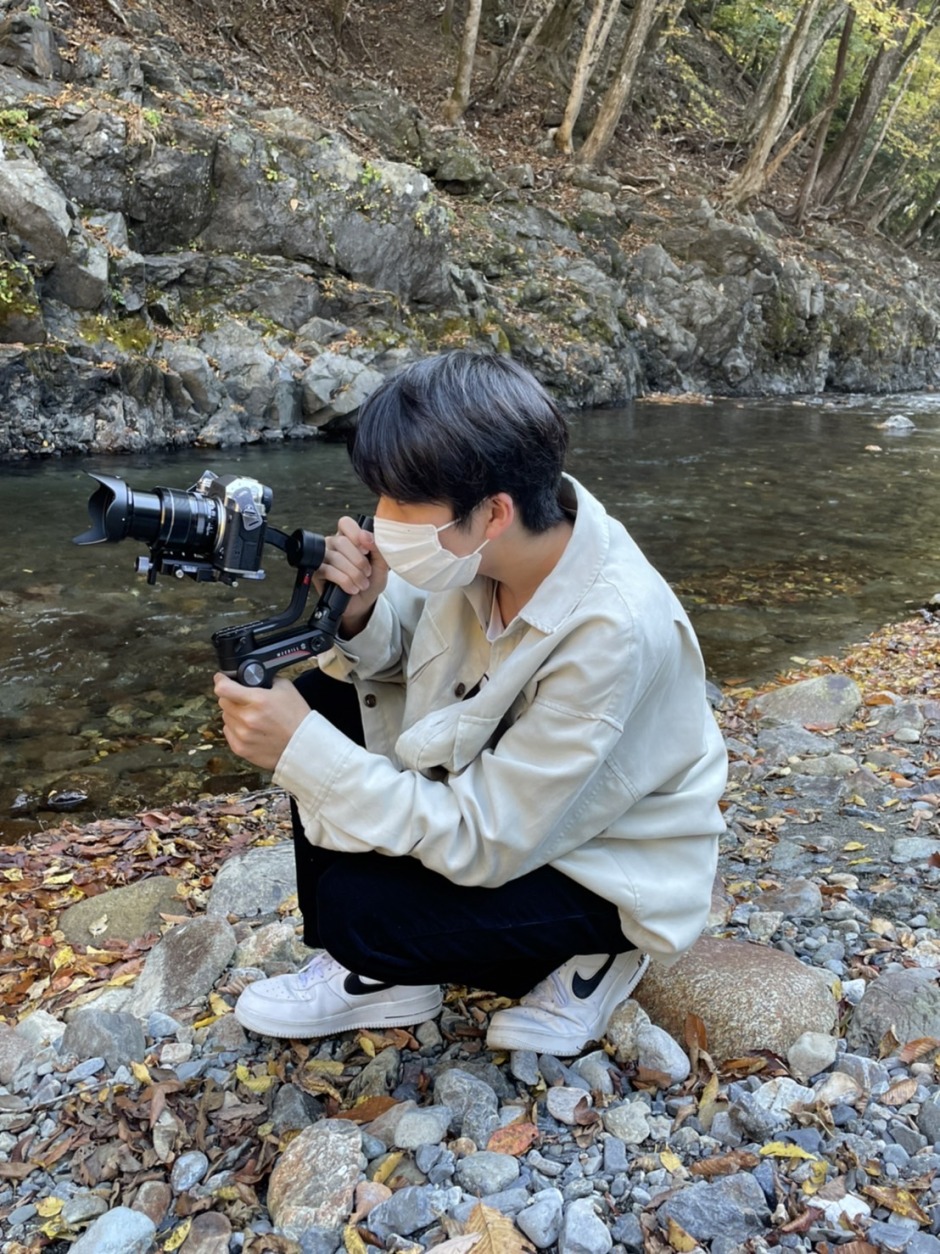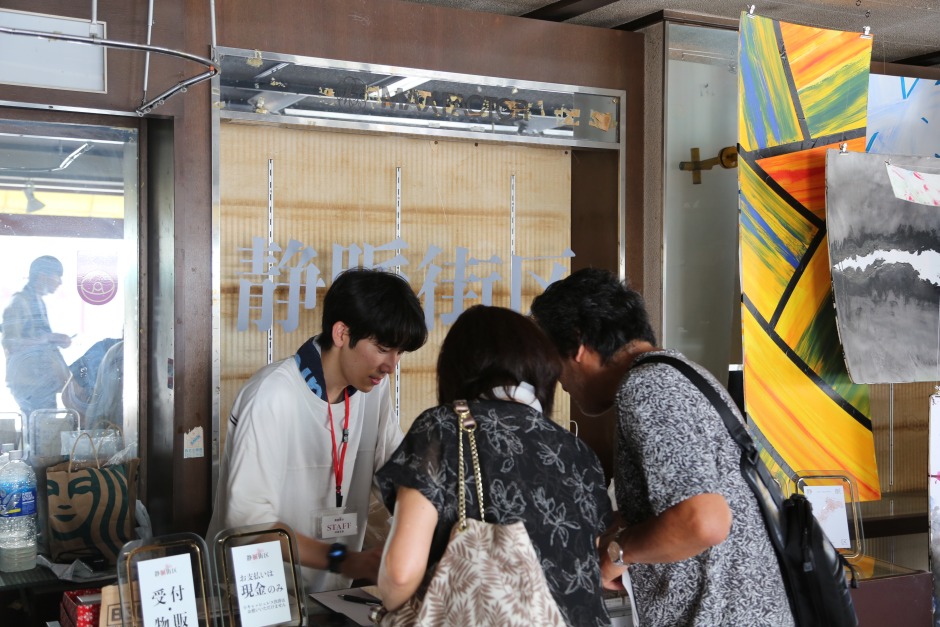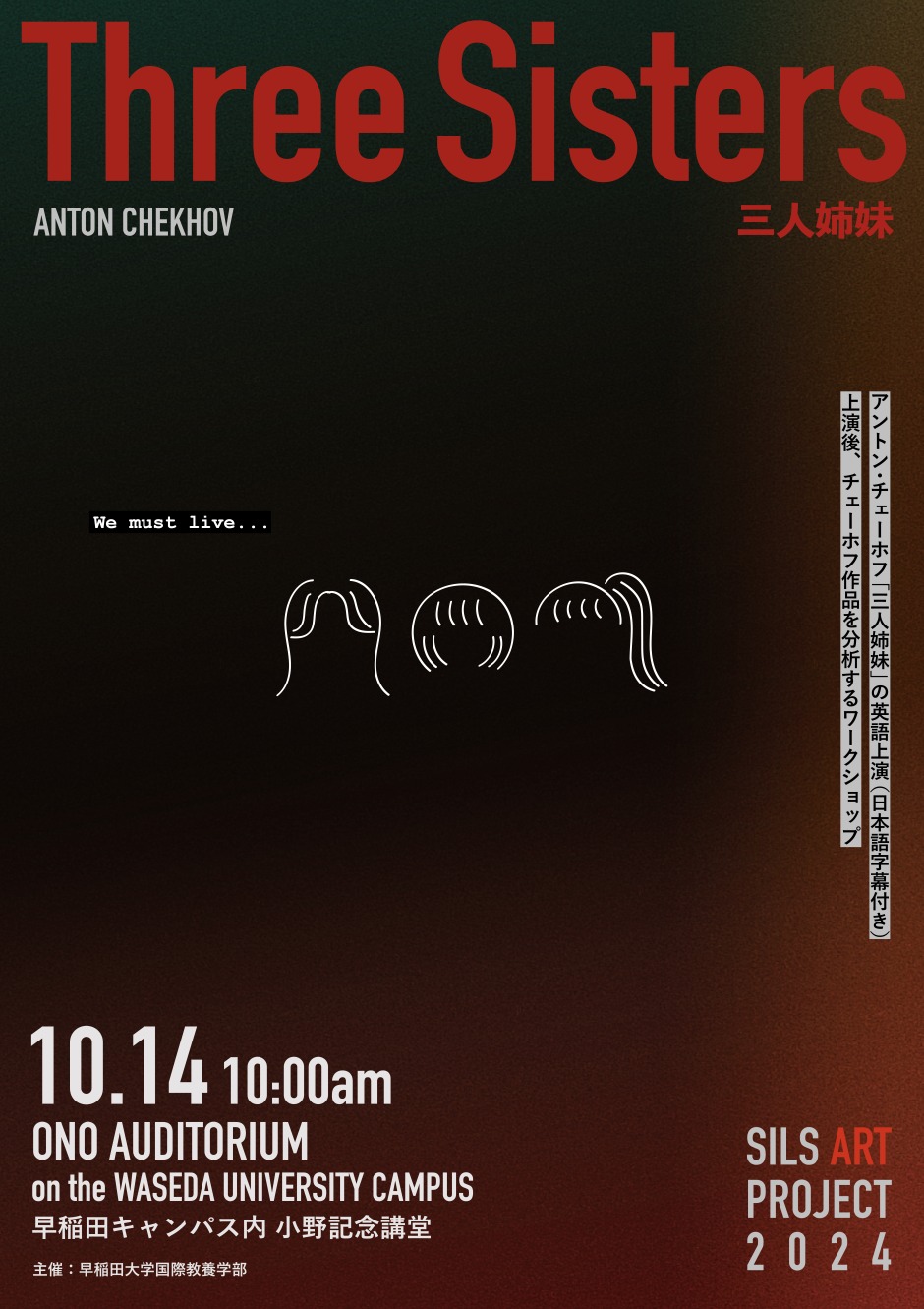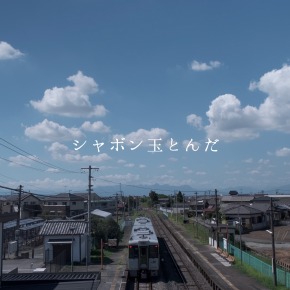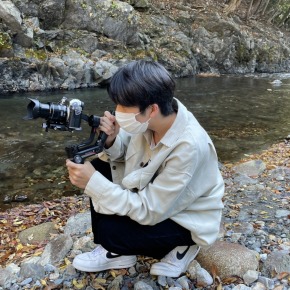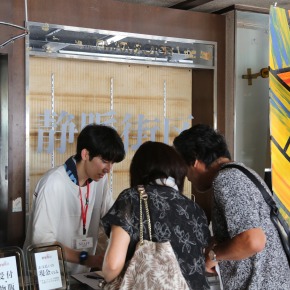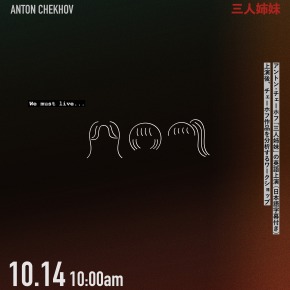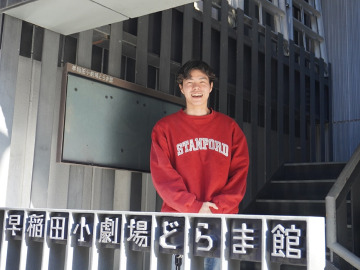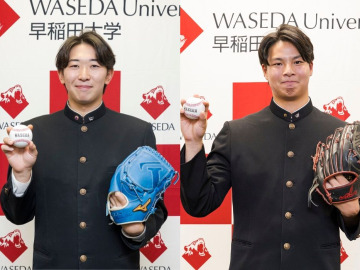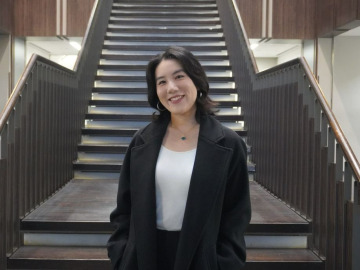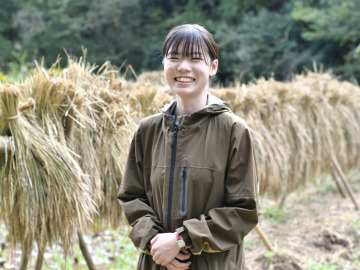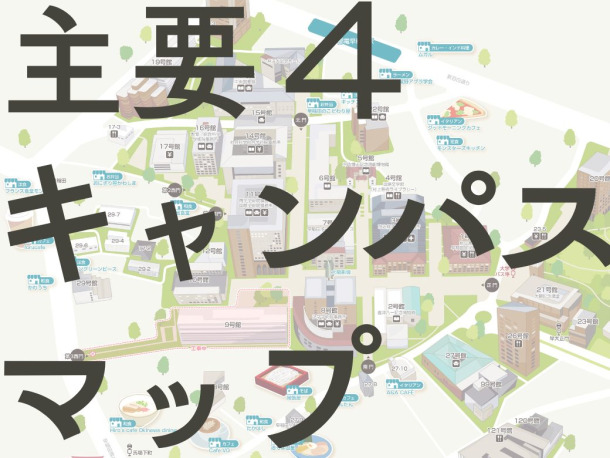"I want to aim for the coexistence of life and art"
Fumiya Tajima, 4th year student, School of Humanities and Social Sciences
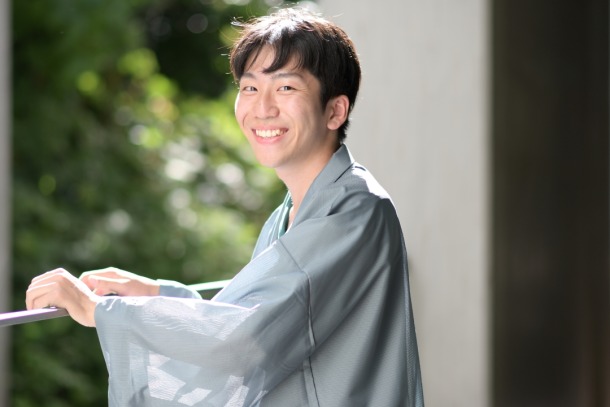
At Toyama Campus
Fumiya Tajima planned and organized the student-led art event "jyo-myaku gai-ku (Venous Block)," which took place in an abandoned house in Honjo City, Saitama Prefecture in July 2024. While majoring in film studies in School of Humanities and Social Sciences of Letters' Theater and Film Course, he also works on independent film production, which has been nominated for multiple film festivals. We spoke to Tajima about the "jyo-myaku gai-ku" project, his own filmmaking experiences, and his outlook for the future.
--What kind of project is the "jyo-myaku gai-ku"?
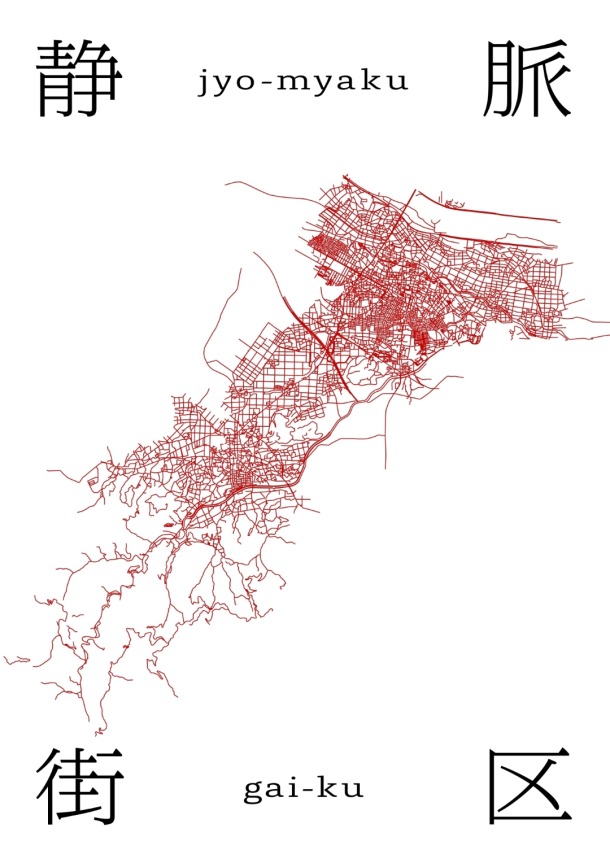
The main visual for the "Venous District"
The idea was to invite student artists to vacant houses to create artworks as they wish, and hold an art festival. The image of pumping oxygen (students) into a place that has run out of energy (vacant houses) and is no longer in use, overlaps with the pulmonary veins that carry fresh, oxygenated blood, so the project was named "jyo-myaku gai-ku (Venous Block)".
What kind of activities were you doing before starting this project?
During my first and second years of university, I commuted from my hometown of Honjo City, Saitama Prefecture, so the commute was long and it was difficult for me to join student club, but when I moved to Tokyo last year, I had more free time.
So I decided to do something, and first I volunteered at the Pia Film Festival, which is related to the film I was studying. After that, I made a film and submitted it to the festival, which was nominated and participated in the festival as an award winner. I also participated in the TOHO Cinemas Student Film Festival as an executive committee member, and before I knew it, I had become a film festival person (laughs). Just when I was thinking about planning an event myself, I met an art school student at a festival I attended who would later become the co-director of "jyo-myaku gai-ku".
Left: Photo taken when he served as an executive committee member at the TOHO Cinemas Student Film Festival
Right: The independent film "Shabondama Tonda" will be released in 2023 "Shibuya TANPEN Film Festival", "Tsurukawa Short Movie Contest" The photo shows Tajima giving a speech at the reception party for the Shibuya TANPEN Film Festival. On the right is Tajima.
-Please tell us how that encounter led to you starting this project.
We decided to start a joint project because "There are not many opportunities for student artists to work outside of school." Many art universities are located in the suburbs of Tokyo, and many students commute to Tokyo to attend. However, the cost of space in Tokyo is high, and unless you have the skills, you rarely have the opportunity to exhibit your work.
Another trigger was seeing the news that one-third of the houses in Japan will be vacant in the future. Linked to the scene of shuttered houses in my local area, I was thinking about how to make effective use of vacant houses. So I came up with the idea that an art school student should return to the countryside and use the vacant houses as exhibition spaces, and this project was born.
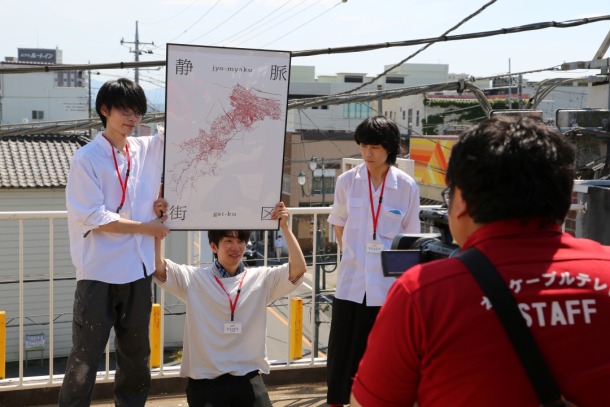
Being interviewed on the day of the event. From the left: co-representative and artist Ohka Mouji, Tajima, and executive committee member and artist Genta Masuda. The event was held in Honjo City thanks to a local acquaintance who was willing to provide a vacant house.
--When did you start planning this, and how did you gather the funds and participants?
It will be in March 2024. We raised funds through crowdfunding. We also went to various companies to ask for sponsorship, but many of them turned us down... It was a mentally exhausting point. In the end, we were able to get sponsorship from a facility construction company and a food company based in Honjo City. I think the desire to live up to the support from the sponsoring companies was what motivated us. As for artists, we directly negotiated with 40 art universities and vocational schools in the Kanto region and sent posters to recruit participants, and 15 groups participated.
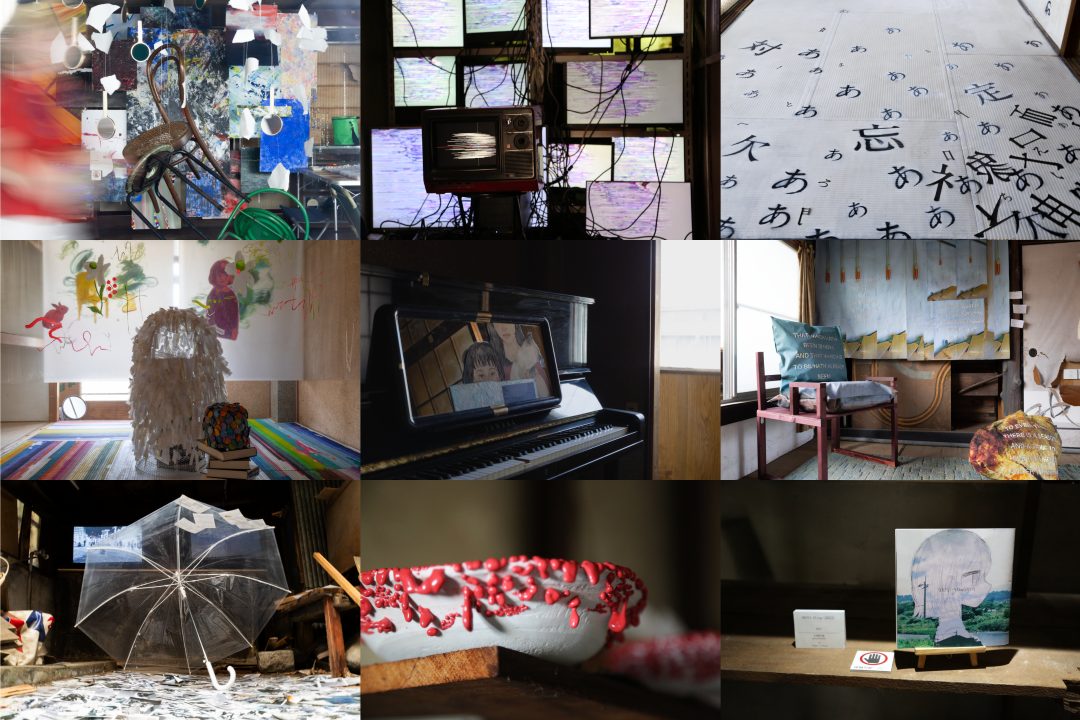
Some of the works by participating artists. The exhibition was held in six abandoned houses.
When we actually held the event, we were able to attract a wide range of visitors, including local residents, people who followed our activities on Instagram, the presidents of sponsoring companies, and art Professor. The participating artists also said, "It was interesting because we don't often have the opportunity to create in an environment like this," and we feel glad that we were able to see it through to the end. In addition, as a result of this event, we received a request from Honjo City Hall to "supervise the decorations for future events." We would like to continue to explore ways to approach the challenges facing the city from an artistic perspective.
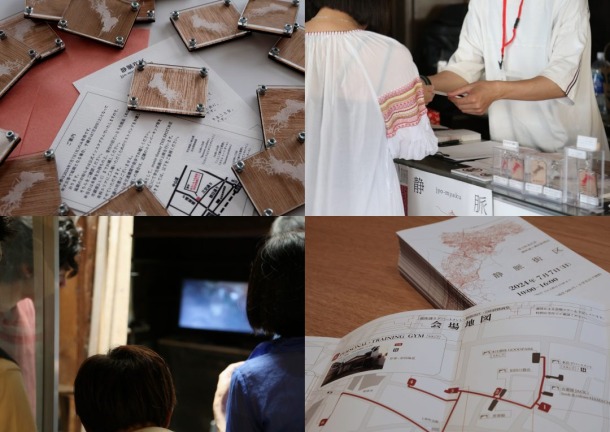
The event itself. Clockwise from the top left: invitation tickets with purchasers' names engraved on them, wristbands being handed out at the reception, pamphlets, and the exhibition hall.
--What made you fall in love with film in the first place? Also, why did you decide to study theater and film at the Faculty of School of Humanities and Social Sciences?
I was always a big TV fan. I especially liked shows with the word "world" in the title, and watched them a lot. I think I found it interesting how the images taught me about unknown things, and allowed me to relive things I had never experienced before.
The reason I went on to the Department of Theater and Film Studies in the Faculty of School of Humanities and Social Sciences was largely due to the influence of the art classes I took in my third year at Waseda University Honjo Senior High School, where I graduated. I drew a picture for my graduation project, and placed a QR code in the middle of the picture, so that when the code was read, a video of the world depicted in the picture would play, and I also created a video at the same time. I found video production interesting, and decided to go on to higher education, wanting to learn more about video.
Now I'm mainly studying film history and theory, and I watch films from an academic perspective, from the beginning of film to filming techniques, etc. However, I wanted to produce an output that was commensurate with the amount of input I was receiving, so I started making my own films in my third year of university.
--Please tell us about your future prospects.
I plan to participate in the film festival as a staff member again while I am still a student. Recently, I have become addicted to using Illustrator, and I would like to work on creating visuals for film festival PR in the future. I also want to work hard on my graduation thesis, which is about independent film. I want to tell everyone that even if you are like me and have not done anything in your first or second year of university, "If you want to, you can do something even in your third year!"
No.882
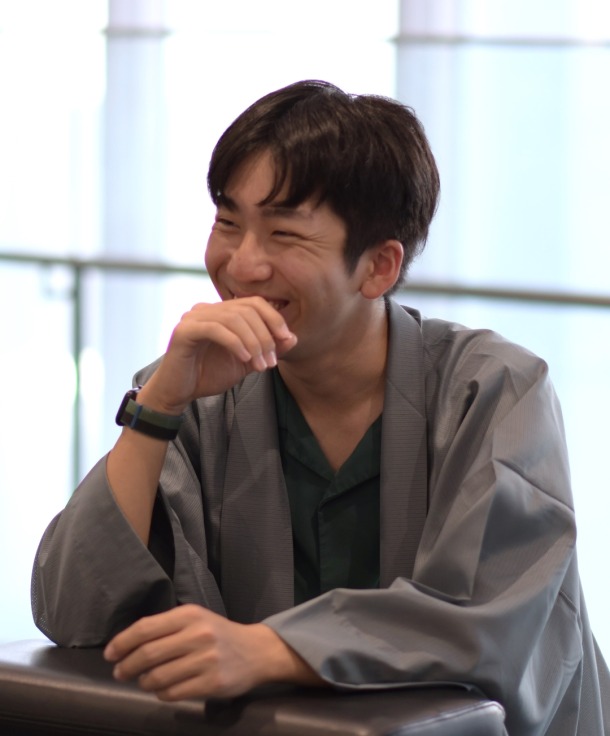
During the interview
【Profile】
Born in Saitama Prefecture. Graduated from Waseda University Honjo Senior High School. His current hobby is watching anime, and he binge-watches all the anime from each production company. His favorite food is Marusei Butter Sandwich. Vein Gaiku Instagram: @jyomyaku_gaiku

